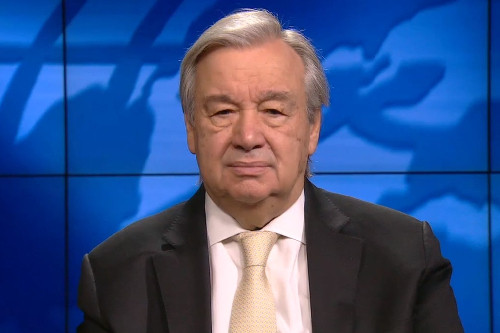
Video Message by António Guterres, Secretary-General of the United Nations, on the 10th Anniversary of the Great East Japan Earthquake and Tsunami文章源自英文巴士-https://www.en84.com/10967.html
文章源自英文巴士-https://www.en84.com/10967.html
11 March 2021文章源自英文巴士-https://www.en84.com/10967.html
文章源自英文巴士-https://www.en84.com/10967.html
Today is a solemn day of remembrance for the 18,400 people who died or are still missing as a result of the Great East Japan Earthquake and Tsunami ten years ago.文章源自英文巴士-https://www.en84.com/10967.html
文章源自英文巴士-https://www.en84.com/10967.html
My condolences go to those who continue to grieve the loss of loved ones.文章源自英文巴士-https://www.en84.com/10967.html
文章源自英文巴士-https://www.en84.com/10967.html
And I think of those who remain displaced, unable to return to their homes because of safety concerns surrounding the destroyed Fukushima Daiichi nuclear power plant.文章源自英文巴士-https://www.en84.com/10967.html
文章源自英文巴士-https://www.en84.com/10967.html
In that regard, I welcome the reassuring findings of the United Nations Scientific Committee on the Effects of Atomic Radiation.
Japan is leading the world when it comes to disaster prevention.
The country has invested heavily in building back safer over the last ten years.
And it has helped to share the lessons learned for the future.
The Sendai Framework for Disaster Risk Reduction, adopted six years ago, is a global blueprint for a safer world.
To prevent and manage disasters, countries need to plan, invest, give early warnings and provide education on what to do.
And they must prioritize the most vulnerable, such as the elderly and the disabled.
To manage the many risks that face us today – from earthquakes to biological hazards, from pandemics to extreme weather events – we must be inclusive, so nobody is left behind when disaster strikes.

